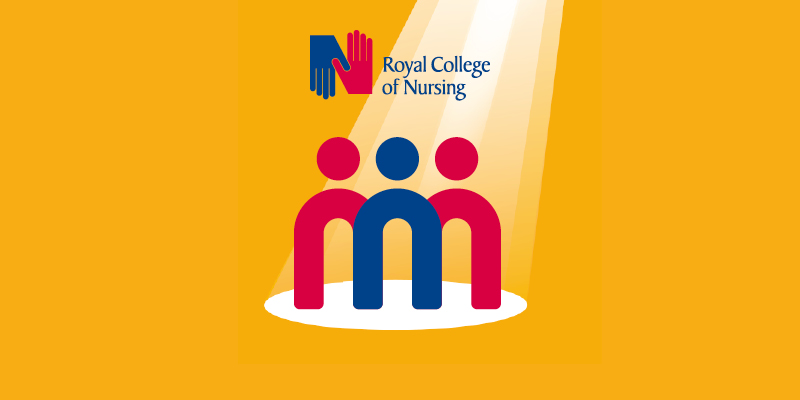The first cohort of nursing associates are starting revalidation, a process that must be completed every three years to maintain their registration.
Nursing associate Jamie Sutton has until the end of next year before he needs to revalidate, but he’s getting everything ready early and by getting organised now, he feels comfortable about what he needs to do.
“I attended a short workshop ran by our clinical education team when I first registered. They talked us through what was required to revalidate. I also did some online research, so I was clear about what was involved.
“I’ve got a folder which I put all my relevant information in. Although I’m still a way off needing to revalidate, I’ve already got some reflections, records of my continuing professional development hours, details about the in-house training courses I’ve attended, and some thank you cards I’ve received.”

To improve his practice and care, Jamie makes a point of reflecting on positive and challenging workplace scenarios, documenting what happened while details are fresh in his mind. While this is useful for those who have to revalidate, this is something all nursing staff can benefit from doing.
“I do this as I go along, but for revalidation purposes, I also think about what’s in my folder every six months or so. This makes sure I’m not falling behind as there are many areas to cover.
“If, like me, you’re revalidating for the first time in the next few years, get your evidence prepared early and if you’re at all worried, seek advice from those who have done it before.”
Ten top tips for revalidation
Start thinking about revalidation early, says practice development nurse Coral Drane
- Don’t panic: Use the NMC and RCN resources and seek support if you need to. Talk to others who have revalidated before if you are worried.
- Know your stuff: Familiarise yourself with all elements of revalidation by reading the NMC resources What is revalidation? and What you need to do. Review the NMC Code too. It lists the professional standards that all registrants must uphold.
- Get organised: Visit NMC Online to check your renewal date. The NMC will notify you at least 60 days before your application for revalidation is due.
- Build your confidence: Attend any virtual or face-to-face training you’re offered.
- Get a filing system in place: This can be a paper-based folder for any documents useful for revalidation or, if you prefer, set up an electronic folder for your documents, with subfolders for each element of the revalidation process. At least once a month make a note of what you’ve been doing while it’s still fresh in your mind. Set up a digital reminder or include it as a regular topic in team meetings.
- Do things as you go along: Log your practice hours on the NMC template and log your continuing professional development (CPD) as you do it so you don’t forget anything. Don’t worry if you have too many hours – that’s fine. Save your certificates in printed form or electronically. Keep notes of feedback that you, your team or organisation receive.
- Think about feedback: Practice-related feedback can be evidence from patients, families or colleagues. Feedback doesn’t always need to be positive or written down. You can record any verbal feedback that you receive as a personal reflection. Always save copies of feedback and be aware of rules around confidentiality of information.
- Start your written reflections early: Choose your best five to reflect on; good events as well as challenges you’ve learned from, CPD activity or feedback received. Remember your reflections will have to be transferred onto the NMC template prior to revalidation.
- Get your people in place: Decide early on who you want to be your reflective discussion partner. They must be an NMC registrant; they could be your confirmer or a different person. Your confirmer can be your line manager, another NMC registrant, another health care professional, or someone from the recognised list issued by the NMC.
- Consider indemnity: If you’re working in the NHS or the independent sector your indemnity arrangement will be covered by your employer – discuss this with them to confirm that everything is in place.
Did you know?
- The deadline for submitting your revalidation application is the first day of the month in which your registration expires. So if your renewal date is 30 April, your revalidation application date deadline will be 1 April.
- Although the NMC strongly recommends that the confirmation discussion takes place as part of an appraisal, this isn’t mandatory.
- Confirmers should simply confirm they’ve seen all the evidence that registrants have met all the requirements for revalidation.
Read next

How ANPs work within intensive care
Suman explains how advanced practice is shaping the future of nursing

Care, commitment and professionalism: why we’re celebrating nursing support workers
This RCN Nursing Support Workers’ Day, we’re championing these vital roles with powerful stories, a video series, and events that shine a light on their legacy

What I do at work: health care support worker in a prison
Lynne tells us about her challenging yet rewarding role

What to know about nursing probations
Your rights, top tips and what shouldn't happen

What I do at work: neurology nursing associate
Hazel works with patients who have conditions including Parkinson's and MS

Trust, triage and teamwork
The nursing staff supporting children at a boarding school
{{ article.Title }}
{{ article.Summary }}


